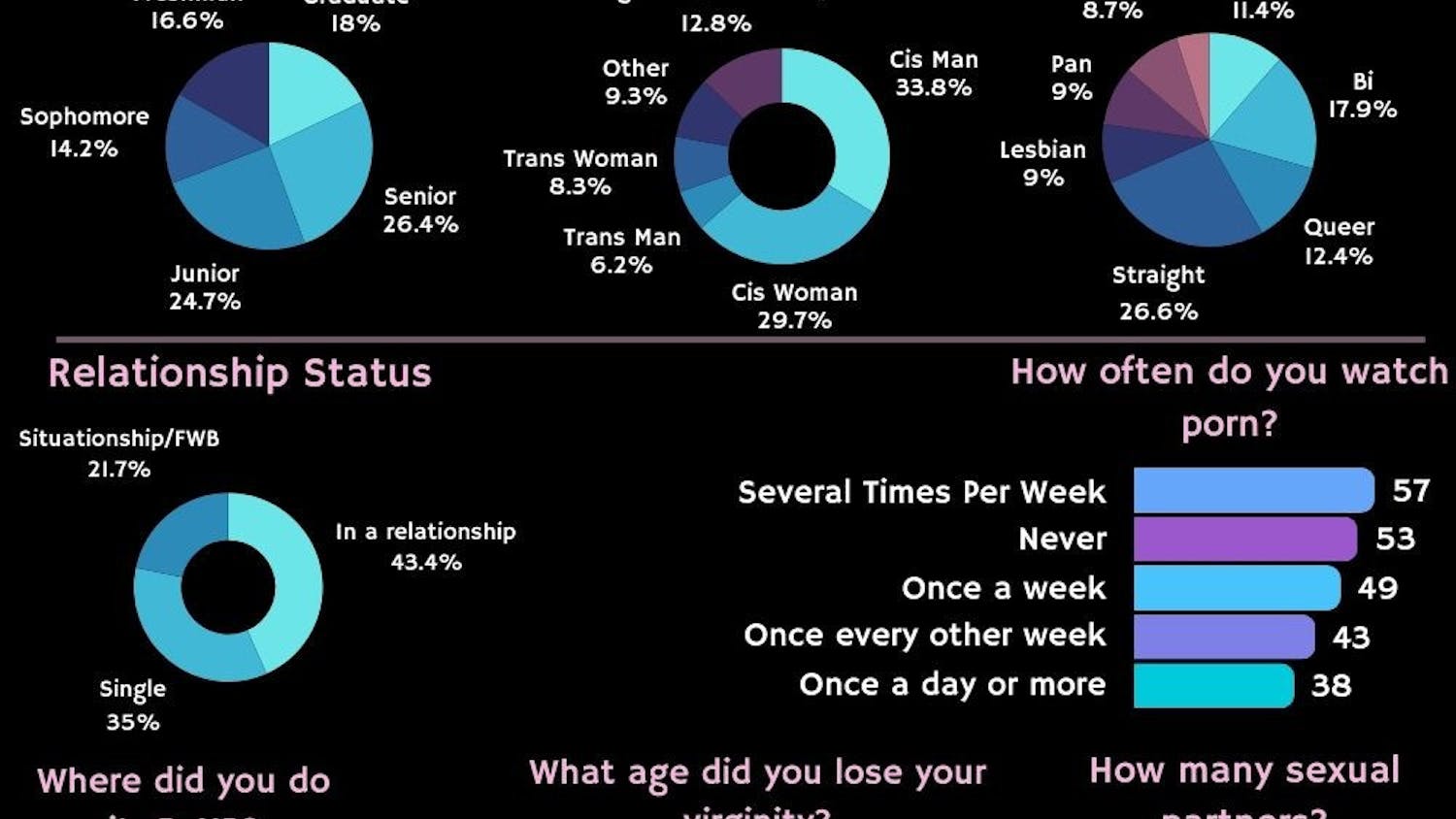Alan Zweibel went from being a South Campus resident advisor to an Emmy Award winner.
After growing up on Long Island, Zweibel attended Buffalo State College and transferred to UB in 1969 for the rest of his college career. As a resident advisor at UB’s Tower Hall on South Campus, Zweibel found his niche as a comedy writer in his time as an undergraduate.
“It was sort of like the revolutionary war years on campus,” Zweibel recalled.
Zweibel said his time at UB is “tumultuous.” Continuous outcry toward the Vietnam War led Zweibel to channel his experiences through writing.
“I sort of wrote about that, but I did it comedically,” Zweibel said. “I thought there was some sort of hypocrisy toward playing the part of a revolutionary, if you will.”
But before Zweibel found his knack for comedy, he first had his eyes set on law.
Dan Zakaran, a UB alum and Zweibel’s friend and lawyer, recalls Zweibel’s ambitions before comedy.
“Alan was thinking about becoming a lawyer, and indeed applied to law school,” Zakaran said. “I tutored him for about a month [for the LSAT exam] and shockingly, my tutoring didn’t work. I think he went up by all of 50 points.”
He described Zweibel as “notoriously late,” and remembers regularly telling Zweibel events started 30 minutes earlier than they did so he would arrive on time.
Zweibel eventually amassed a collection of thousands of jokes in his free time, sending his favorites to late night talk show hosts like Johnny Carson and Dick Cavett. He said he knew no other way into the business.
“I actually cultivated [jokes] when I was a student at UB,” Zweibel said. “I wanted to be a comedy writer and I didn’t know how to go about doing it, [so] I just started writing jokes.”
Each night, Zweibel would watch the late night talk shows to see if any program used his jokes. Though they never used anything he wrote, he took some encouragement that his style of comedy seemed so close to what the professional comedy writers were doing.
Zweibel found work writing for comedians after graduating from UB, while also working at a deli to support himself. He took the unused jokes into a personal stand-up comedy routine, performing in comedy clubs like Catch a Rising Star in New Jersey and the Improv in New York City.
Eventually, he caught the eye of “Saturday Night Live” creator Lorne Michaels. Zweibel gave his collection of jokes to Michaels and earned a writing position on “SNL.”
“I was real lucky to be in the right place at the right time, and I was prepared,” Zweibel said.
Zweibel played a pivotal role on the show, penning “Samurai Delicatessen” starring John Belushi.
Zweibel continued his television career writing upon leaving “SNL” in 1980, continuing to collaborate with “SNL” cast member Gilda Radner as well as co-creating the “It’s Gary Shandling’s Show” with the titular actor. Zweibel’s resume includes writing credit for the “Late Show with David Letterman” and “Monk.” He even appeared in an episode of “Curb Your Enthusiasm.”
“I’ve been very lucky to have been a part of shows that were sort of ground breaking and had different, left-of-center sensibilities,” Zweibel said.
Zweibel earned numerous writing awards throughout his career, including three Emmys, two Writers Guild of America Awards, a Tony for his work with Billy Crystal on “700 Sundays” as well as the Thurber Prize for American Humor.
The State University of New York recently awarded Zweibel with an honorary doctorate. Zweibel accepted with his signature humor.
“They probably had one left over and had no one to give to,” Zweibel said. “I was very honored.”
Zweibel emphasizes the need to adapt and find your own voice and outlet; something he says is a personal journey.
“When you’re a writer, you try to capture the voices of the characters you’re writing for,” Zweibel said. “Whether it’s a standup comedian who has a specific tone, a specific look, a specific voice — you try to capture that, … acclimate your ear to who is going to be saying your words. Pick a person dead or alive who you think this would be funny coming out of.”
Zweibel said he often returns to campus for talks and appearances. He sees his experience as proof of the power of determination, especially in the entertainment world.
“There was a couple of times that a bunch of us who graduated UB who went into the arts went and gave classes at UB,” Zweibel said. “I just wanted to convey [to students] that I’m living proof that if you persevere and you take some chances, you can make it. To any upcoming comedy writer, you have to write every single day.”
Brian Evans is the asst. arts editor and can be reached at brian.evans@uspectrum.com and @BrianEvansSpec.
Brian Evans is a senior English major and The Spectrum's senior arts editor.






